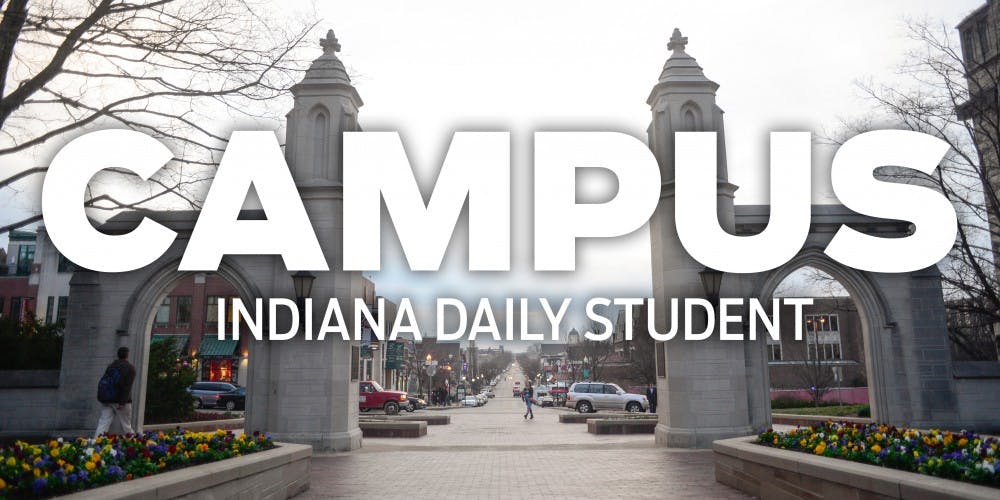October 1962 marked the beginning of the Cuban Missile Crisis, a 13-day saga that would alter international relations for decades to come.
November 2017 marks the 55th anniversary of that crisis coming to a close.
Though Bloomington is more than 1,000 miles from Havana, Cuba, the Cuban Missile Crisis had tangible influence on IU students in 1962, according to dozens of clippings housed in the IU Archives. The letters to administrators and news articles document a history of student protest at the time of the crisis.
The University also welcomed James Blight and janet Lang to discuss their new book, "Dark Beyond Darkness: the Cuban Missile Crisis as History, Warning, and Catalyst," on Wednesday in the Global and International Studies Building.
“In a real basic sense, we have done nothing in terms of abolishing nuclear weapons," Lang said. “Why? Because people don’t care. They aren’t afraid. You’ve never been really afraid of nuclear war.”
The speakers emphasized the importance of the complete removal of all nuclear weapons and said big anniversaries like this one are great opportunities to spread awareness for this cause.
“This is the mindset for this lecture: begin with the endpoint, what we all want to avoid, which is nuclear Armageddon,” Lang said.
The crisis began when the United States discovered the Soviet Union had mounted missiles on Cuba and ended only when the Soviet Union pledged publicly to remove missiles from Cuba. The American public would later learn the United States also secretly promised to remove missiles it had stationed in Turkey.
Less than a week after the crisis began, former President John F. Kennedy announced Oct. 22 that the U.S. would stage a naval blockade of Cuba.
“We had second thoughts about the blockade, and when the Soviets actually sent ships toward the blockade, we let several of them pass because we didn’t want to start a war,” Dina Spechler, an IU professor of political science whose work focuses on Russian relations, said.
Two days after the president’s announcement, a protest face-off broke out on IU’s campus.
A group of 15 students from a group called the Ad Hoc Committee to Oppose U.S. Aggression passed out handbills inviting students to a protest in front of the IU Auditorium to oppose Kennedy’s blockade decision.
The Indianapolis Star reported at the time that the handbills called for a demonstration “to protest the provocative, illegal and warlike blockade by the U.S. against Cuba.”
The protesters were met at the steps of the auditorium by more than 2,000 counter-protesters in favor of the blockade, toting signs saying things like “To Hell With Fidel” and “Yankee, si; Cuba, no!”
The next day, local newspapers ran headlines like “Pro-Cuba Demonstrators Get King Sized Heckling,” “Cuba Picketing Ignites Fights” and “IU Campus Police Quell Riot-Minded at Cuba Demonstration.”
Elvis Jacob Stahr Jr., then-president of IU, was in New York at the time of the protest.
Nevertheless, his mailbox was flooded with newspaper clippings of those same headlines.
One clipping, “from Jonnie Reb. down south,” was covered in scribbles. Above the headline, the paper reads, “Indiana University Students that has been brain washed by Moscow: stay up north you dam Moscow Reds.”
On this same paper, the face of a man holding a sign saying “Get out of Guantanamo” has been defaced by the sender. His photo is outlined in a trail of the word “punks.”
News of the protest spread, and mail from across the nation landed on Stahr’s desk.
“If these men are your students the freedom loving people of the World must surely wonder what is being taught at Indiana University,” Charles Buchanan from Charlotte, North Carolina, wrote.
While IU has strengthened its academic relationship with Cuba, recently creating the Cuba Initiative, a program focused on short-term study abroad in Cuba among other initiatives, the U.S. has not consistently done the same.
Under the Obama administration, relations with Cuba were thawing, particularly regarding trade and travel. President Trump announced last week new restrictions on travel to and trade with Cuba.
“Mr. Trump is moving us back to the very frigid state that existed before Obama’s changes,” Spechler said. “Moving us back to something much more characteristic of the Cold War.”



